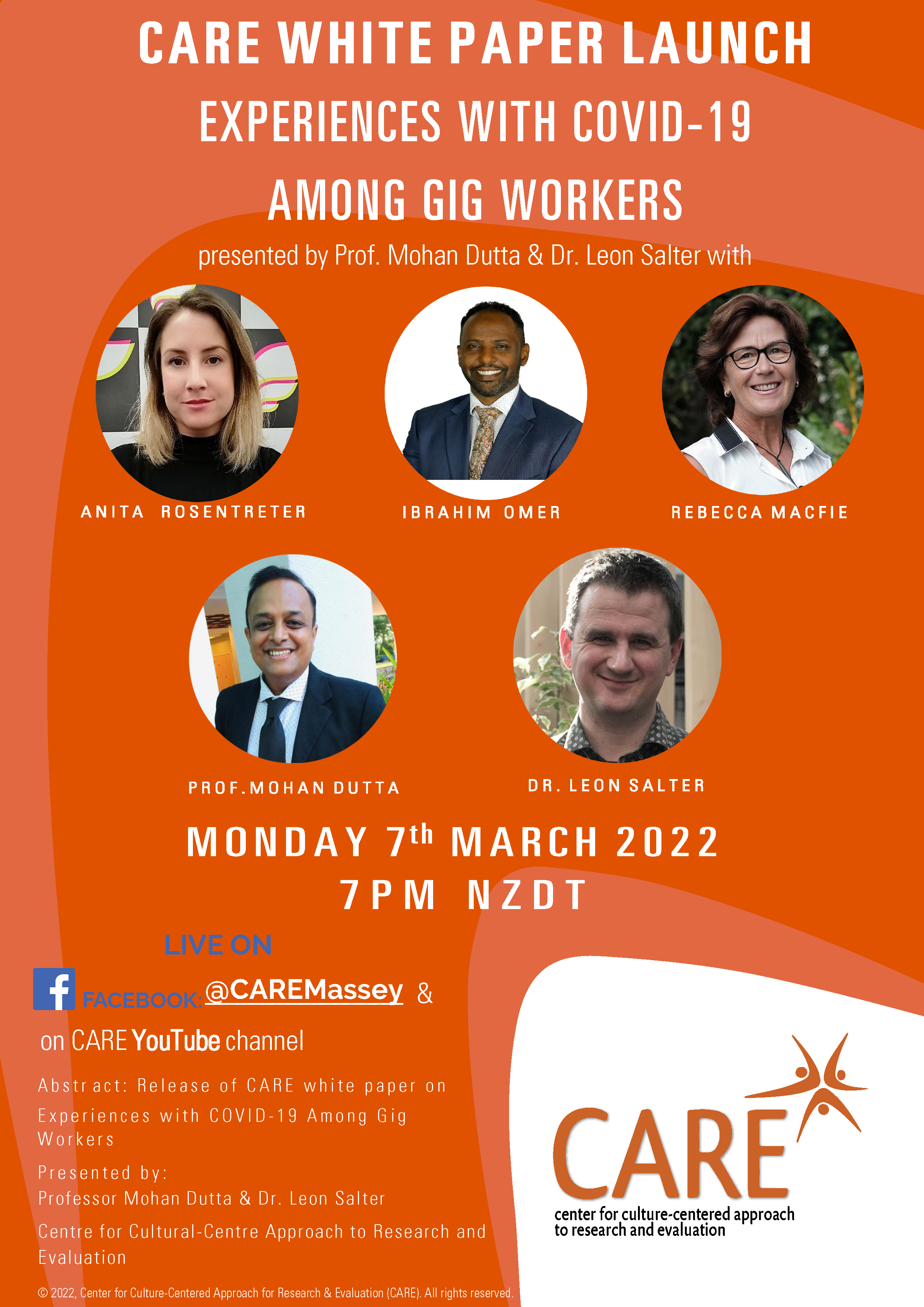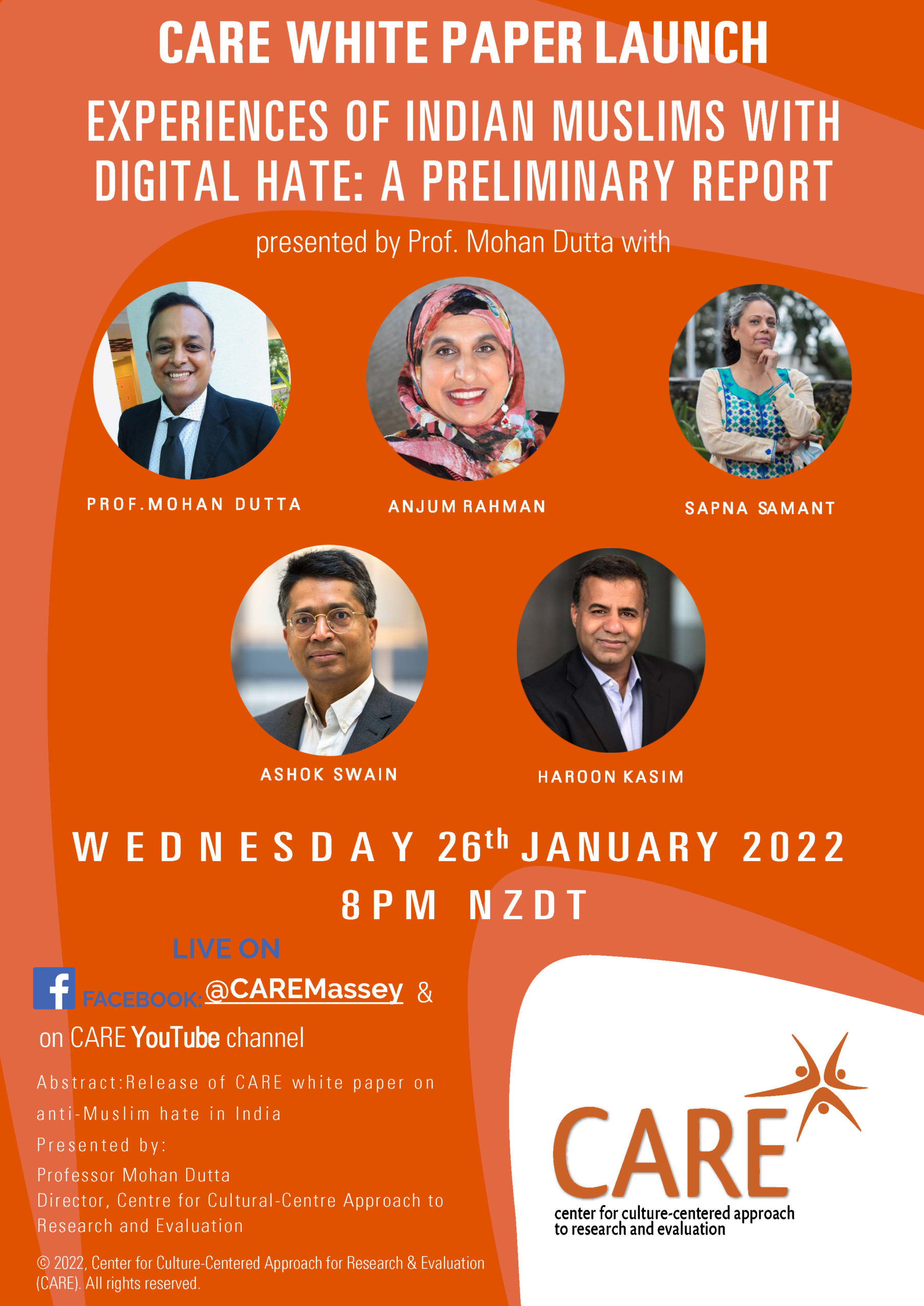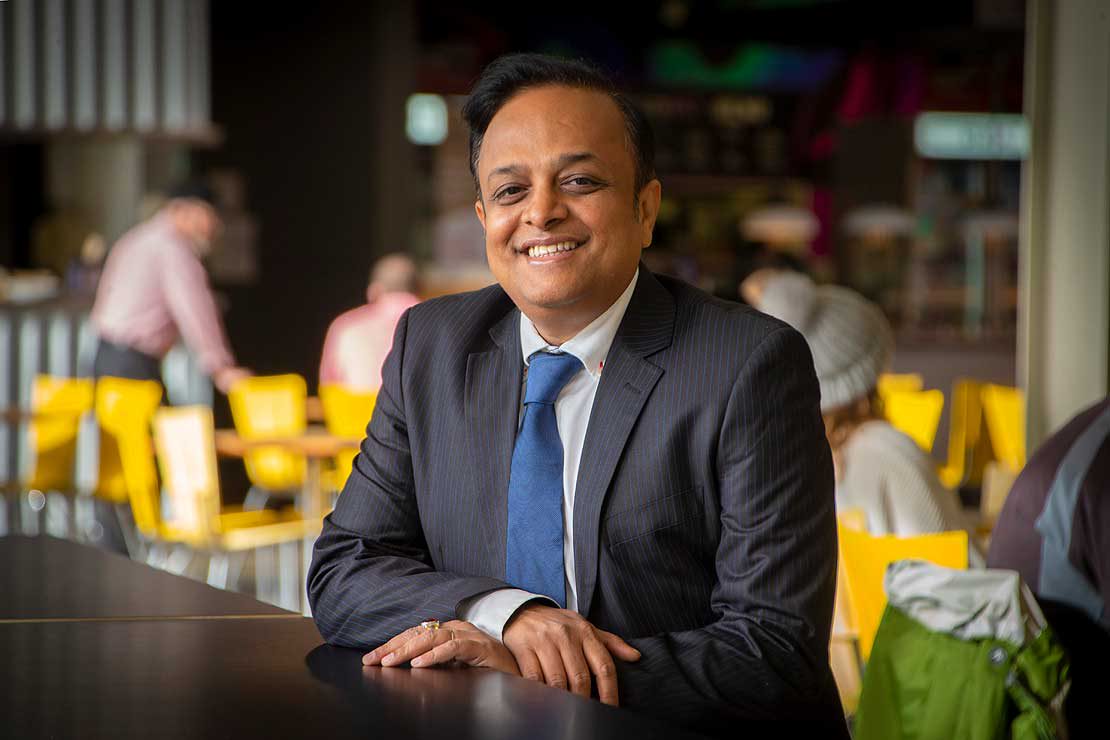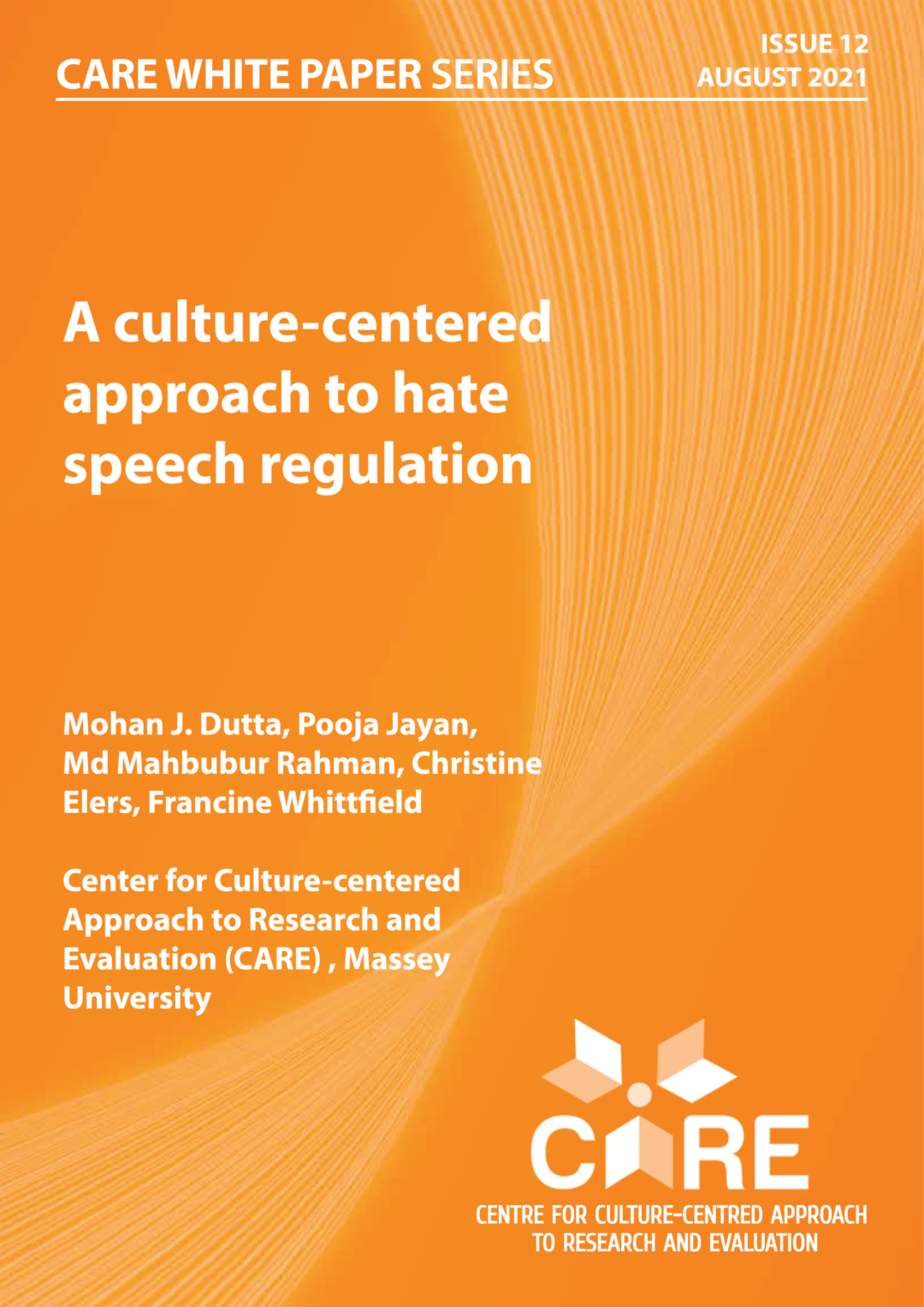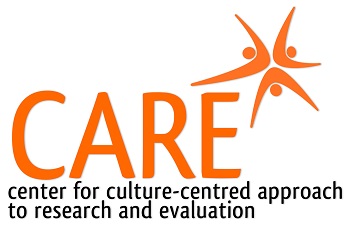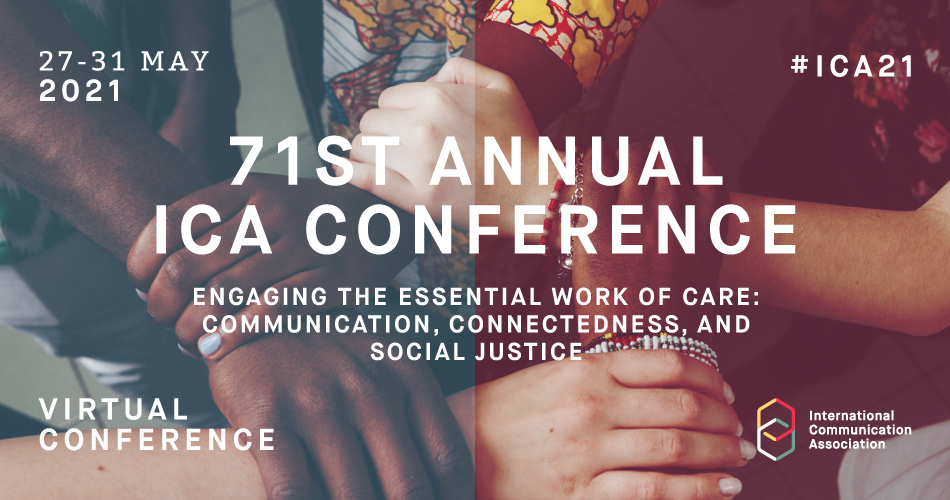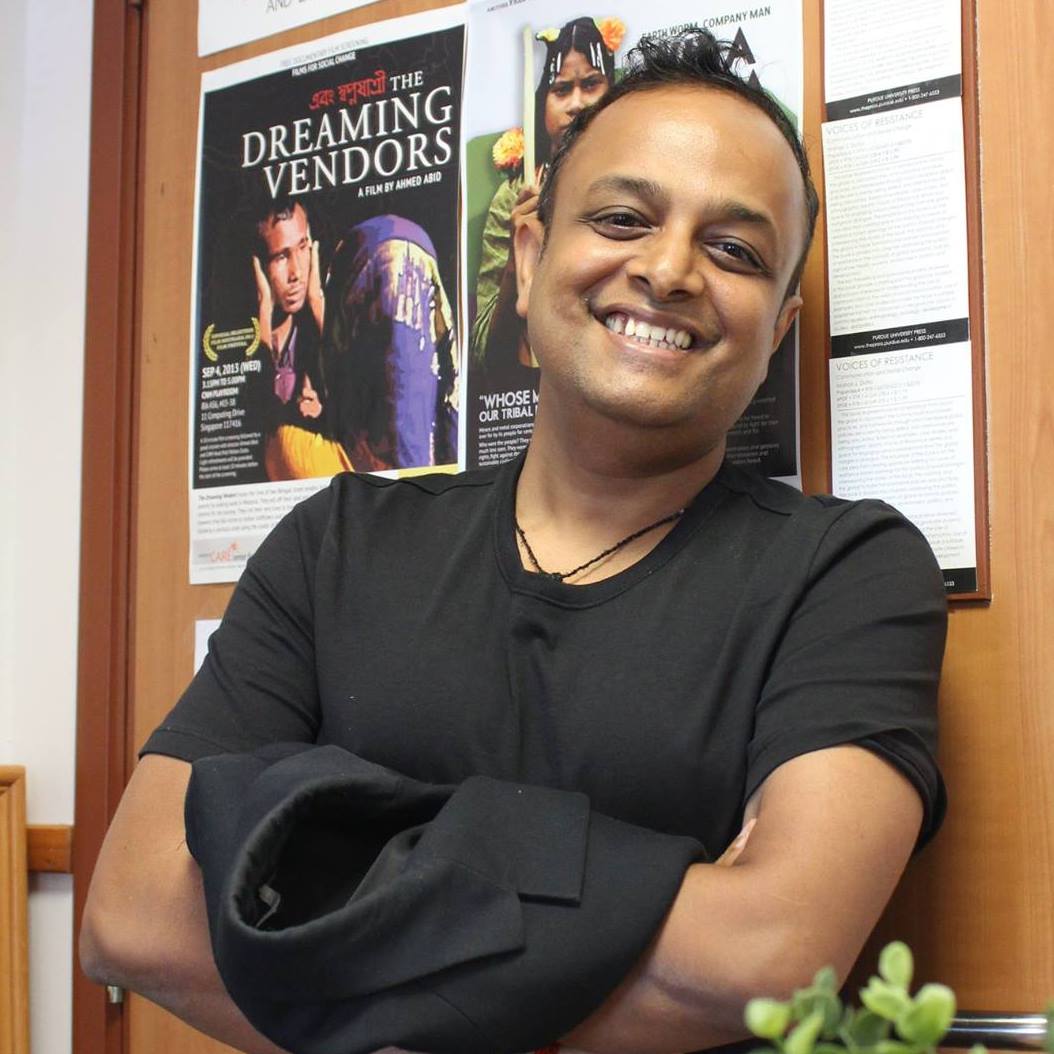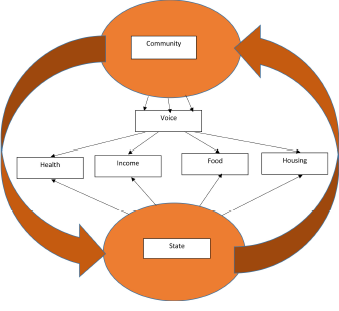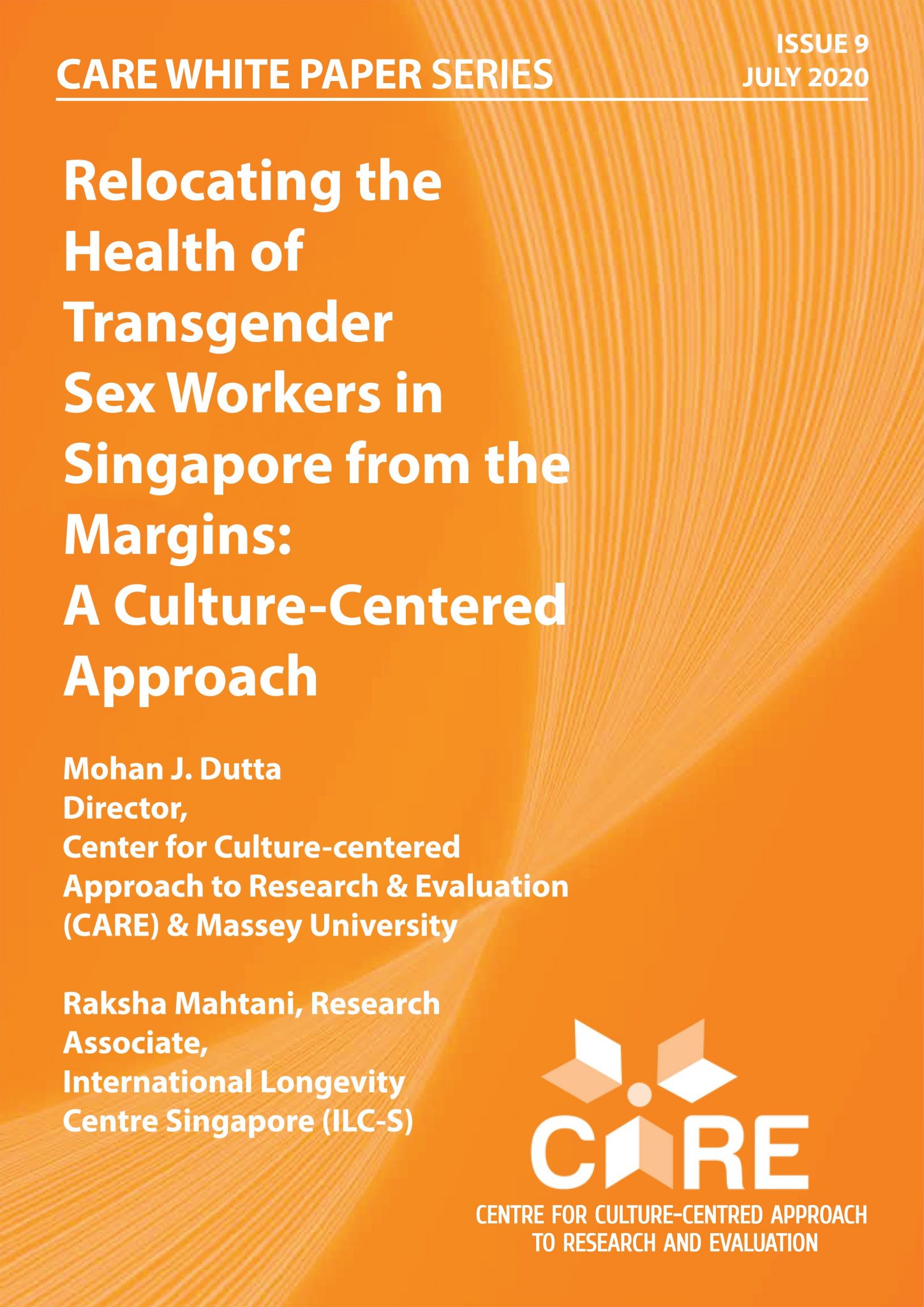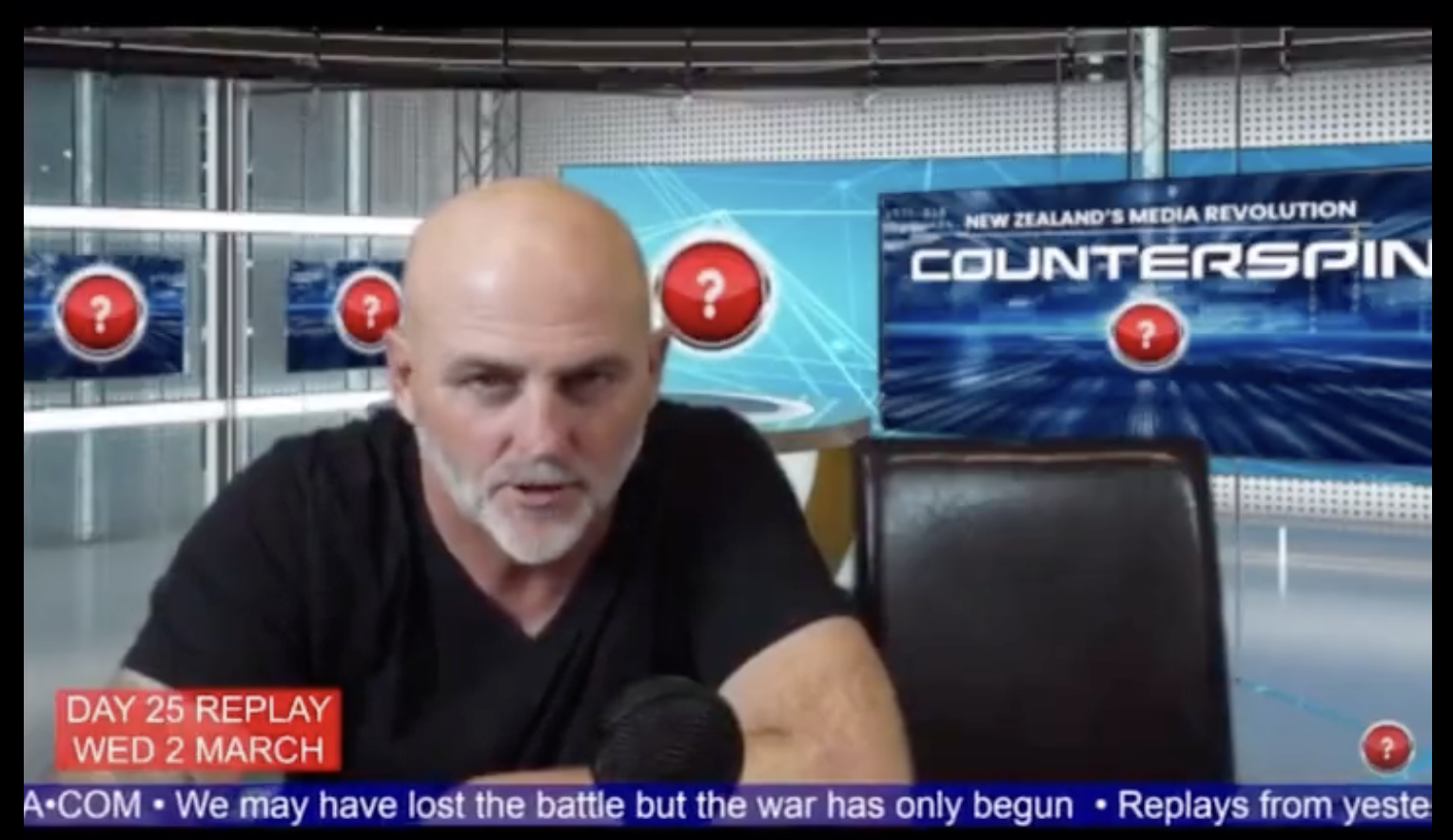
Superficial attempts at listening and dialogue can have the effect of normalising the far right, giving it credibility and the opportunity to grow, writes Professor Mohan Dutta.
One of the mainstream liberal responses to the angry anti-mandate, anti-vax, anti-everything protests that we’ve been seeing around the country are calls for dialogue.
These calls, coming from a wide array of mainstream sources, including the Human Rights Commissioner, suggest that dialogue promotes social cohesion. Dialogue, so the theory goes, creates a middle ground through listening to all communities, thereby preventing polarisation.
Implicit in this approach is the “both sides” logic, with dialogue serving as a resource for developing mutual understanding between the two differing constituencies.
But what exactly is the middle ground when democracies are faced with viral disinformation campaigns organised by powerful political and economic interests?
What exactly are the characteristics of dialogue when dealing with a protest that is propelled and co-opted by disinformation and hate, that is deeply rooted in the ideological apparatus of white supremacy, and that is seeking to seed chaos and capture power by undermining democratic institutions?
What message does the performance of dialogue with campaigns fed by white supremacy send out to Māori, Pacific and ethnic communities who are the targets of the hate perpetuated by the far right?
In the backdrop of the Christchurch terror attack, what message does dialogue with a protest fuelled by white supremacy send to Muslims in Aotearoa New Zealand, who continue to grapple with the trauma of that violence?
Instead of building social cohesion, superficial attempts at listening and dialogue can have the effect of normalising the far right, giving it credibility and the opportunity to grow.
There is profound irony in the fact that the reference to “listening to communities — all communities”, in calls for dialogue covering the statements by the Human Rights Commissioner, relates to the Royal Commission of Inquiry into the Christchurch attack targeting Muslims and migrants.
Consider this irony in the context of the voices of Muslims in Aotearoa New Zealand, who continue to highlight the erasure of their voices and the unresponsiveness of the Crown structures to Muslim voices documenting and raising concerns about Islamophobic hate.
In an Official Information Act response to Christchurch youth advocate Josiah Tualamali’i, Crown Law (the organisation responsible for drafting the terms of the Royal Commission inquiry), stated that “in drafting the terms of reference, Crown Law did not consult with Muslim community leaders and/or victims of the attacks.”
Whiteness and dialogue
The uncritical and celebratory view of dialogue as a human right reflects the whiteness of the mainstream approaches to dialogue, which upholds as universal the values of the dominant white culture.
Instead of building a framework for justice that pays attention to the inequality inherent in many white spaces, the upholding of dialogue as a panacea reproduces and magnifies the disinformation and hate perpetuated by white supremacists.
The protests we’ve seen in Wellington and around the country have been shaped by disinformation and hate, seeded and circulated by right-wing white supremacist hate infrastructures, connected to and imported from Trump-aligned fascist groups in the United States.
You’d have to be blind not to see the convergence in strategies between the recent protests at parliament and the Capitol riots which called for citizen-led arrests of policymakers, jailing them, and even carrying out their executions.
Counterspin Media, a platform that’s been covering the protests and feeding protesters with disinformation, has been a key media resource in the mobilisation of the protests.
As observed by digital activist Byron Clark, who has co-written a white paper on resisting digital hate, Counterspin is streamed on the Steve Bannon-led GTV network and is a key player in organising and circulating disinformation and hate here in Aotearoa New Zealand.
In spite of multiple early warning signs about the presence of this hate infrastructure, the Crown has largely been unresponsive, and digital platforms have continued to profit from the virality of hate content. This is particularly disappointing given the rhetoric of the Christchurch Call.
The host of Counterspin, Kelvyn Alp, has actively promoted disinformation and hate propaganda, calling on protesters to storm parliament and arrest members of parliament, and making multiple references to killing them. On March 2, the day police finally ended the 23-day occupation, Alp opined that things would have gone differently if protesters had been armed:
“Can you imagine if a few boys brought out of their boot a few AK-47s? Those muppets would have run for the hills. That’s the problem. You disarm a population under a false flag so they can then come and eviscerate you.”
Alp is joined by other white supremacists: Brett Power, Philip Arps, Damien De Ment and the white nationalist group Action Zealandia.
Counterspin has also circulated the Christchurch conspiracy video during the Wellington protest, claiming the falsehood that the Christchurch terrorist attack was a false flag.
White supremacists systematically target Indigenous and other minority communities with disinformation and hate propaganda. White supremacist propaganda targeted at Black, Indigenous, people of colour (BIPOC) communities seeds chaos and amplifies and multiplies disinformation and hate. We saw examples of that in the US, where white supremacists co-opted Black Lives Matter protests and organised violence.
These propaganda infrastructures operate largely on digital platforms such as Telegram, Facebook and Twitter. Simultaneously, they create and craft spectacles — the protests — that draw mainstream media attention, further perpetuating the disinformation. The production of the spectacle is a key strategy in placing disinformation and hate into the mainstream media.
Inequalities and dialogues at the margins
Communication is deeply infected by colonial, race, class, and gender inequalities.
Calls for dialogue that overlook or erase these inequalities uphold the power and control of the coloniser. A framework of dialogue rooted in justice recognises these inequalities and seeks to build spaces for the voices of the margins.
Just dialogues need to begin with developing culture-centred methods and practices for communities at the margins, created and led by communities at the margins, that challenge disinformation and hate.
Across digital platforms, I’ve witnessed a number of anti-racist Māori activists and leaders such as Tame Iti, Marise Lant and Matthew Tukaki, who have taken the leadership in countering the disinformation fuelling the protests. They’ve been engaging communities in critical conversations, and have simultaneously been exposing the underlying ideology of white supremacist hate driving the protests.
Respecting the commitments of te Tiriti would put Māori leadership at the heart of any strategy of dialogue and social cohesion.
Respecting the voices of Muslims in Aotearoa New Zealand who have in recent years borne disproportionately the burden of violence emerging from white supremacy would centre the voices of Muslims in building solutions for social cohesion.
In creating opportunities and safe spaces to listen to the voices of those on the margins, we would also attend to the ways in which the whiteness of the Crown’s Covid-19 response has produced forms of marginalisation — including among some of those who took part in the #Convoy22NZ protest — and help to build solutions that address the economic disenfranchisement resulting from government policies.
Partnering with, and supporting, the leadership of communities at the margins as the drivers of solutions is going to be vital to countering the Trumpian web of disinformation and hate that has planted its roots in Aotearoa New Zealand. 
Professor Mohan Dutta (Photo supplied)
Professor Mohan Dutta is Dean’s Chair Professor of Communication at Massey University. He is the director of the Centre for Culture-Centred Approach to Research and Evaluation (CARE), developing culturally-centred, community-based projects of social change, advocacy and activism that articulate health as a human right.
© 2021, Center for Culture-Centered Approach for Research & Evaluation (CARE). All rights reserved.

